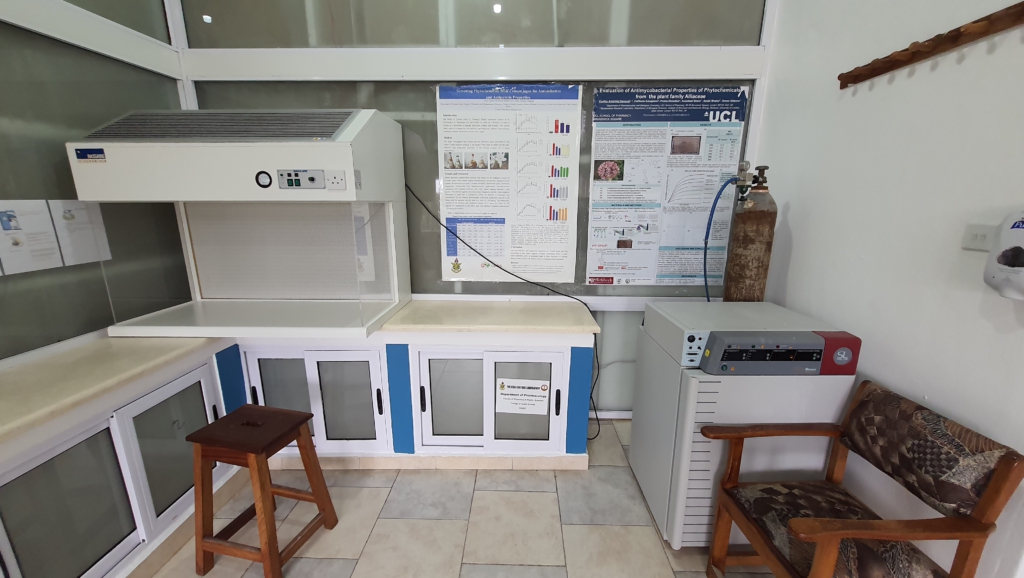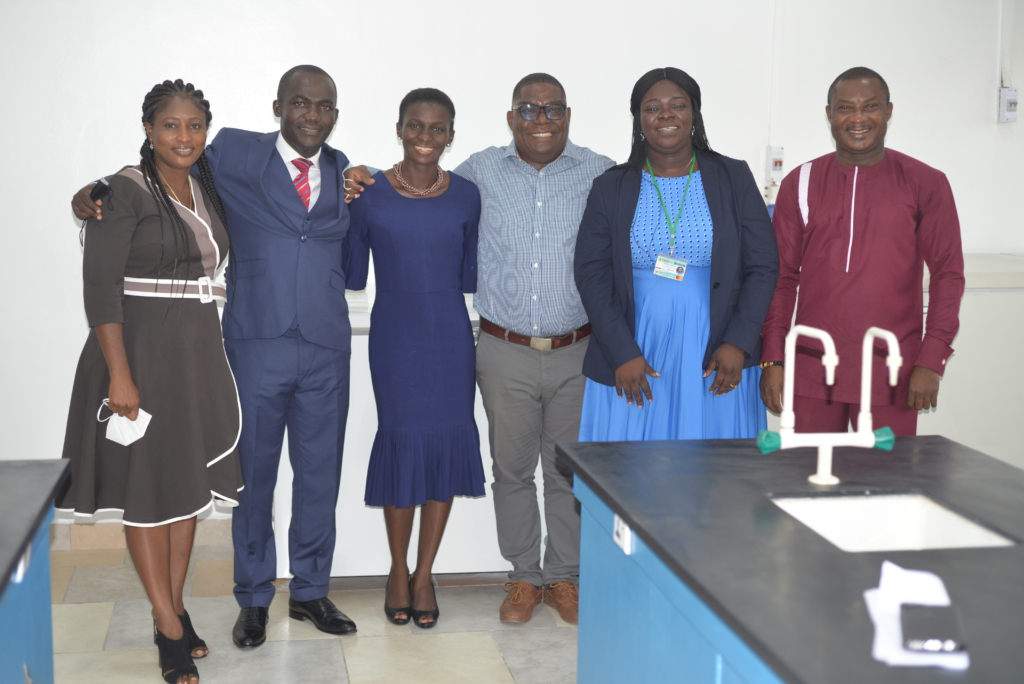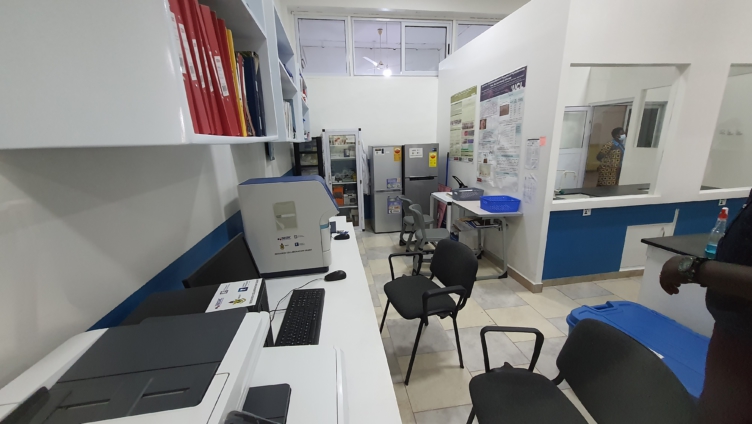Pharmacology education at the Kwame Nkrumah University of Science and Technology (KNUST) is receiving attention with the refurbishment of the Cell Culture laboratory.
This was provided by the Pharmacy Class of 2001 at the cost of 91,000 cedis to enhance research activities at the Faculty of Pharmacy and Pharmaceutical Sciences.
The Cell Culture Laboratory for Graduate Research and Molecular Pharmacology Studies was initiated by Prof. Charles Ansah and Prof. Eric Woode.
The duo won a TALIF grant worth USD 176,000 from the World Bank in 2008 to establish the Cell Culture Laboratory.
Equipment, including laminar flow, fluorimeter, western blotting equipment and consumables were subsequently acquired for the laboratory.

It came at a time when pharmacology research was moving towards cell culture rather than animal studies.
Even with animal studies, further mechanisms of action needed to be established using cell lines.
Acquisition of consumables, reagents and chemicals to sustain the laboratory have been a challenge over the years.
Thirteen years down the line, there was an urgent need to refurbish the laboratory.
The Pharmacy class of 2001, as part of their 20 years anniversary, decided to give back to their Alma Mata, the Faculty of Pharmacy and Pharmaceutical Sciences, KNUST by refurbishing the laboratory to bring it to international standards.
One of the leaders, Ernest Owusu Aboagye is excited at the opportunity to give back to the faculty.

“We got back and decided to give back to thank God for keeping us and to the faculty for the seeds they sowed in us,” he said.
Former Dean and Pro-Vice Chancellor, Rev. Prof. Charles Ansah is positive the lab will be vital for postgraduate education especially, the upcoming Masters and PhD programme in Toxicology.
Dean of the faculty, Prof. Berko Panyin Anto wants the government and the citizenry to invest in research infrastructure.
“For universities to be seen to be doing what they’re doing, in the area of research and teaching, and service to the community, then we need to have a look at infrastructure for research.
“Government, private individuals and industry can all help,” he said.
Latest Stories
-
Ghana to host Ghana-Cote d’Ivoire Cocoa Initiative Headquarters
9 mins -
Olympism365: IOC, WHO and PATH hold stakeholder engagement in Ghana
11 mins -
War can devastate nation, let’s be thankful for the peace we have – Kofi Sarpong
19 mins -
Ghanaian athletes in Côte D’voire for U-20 Championship
39 mins -
Made in Taadi must happen this year by hook or crook – Kofi Kinaata
53 mins -
Labour unions contemplate May 2 strike over unpaid Tier-2 pension dues
55 mins -
Sedina Tamakloe’s arrest: MoF, MASLOC board can’t be left off the hook – Analyst
1 hour -
Three JHS boys arrested for allegedly gang-defiling 15-year-old colleague
1 hour -
Today’s front pages: Friday, April 19, 2024
1 hour -
Magnus RexDanquah : ‘Breaking the Eight’ – The Greatest Scam Ever since Ackah Blay Miezah’s Gold Deposits claim
2 hours -
You cannot advise a fool – Kofi Kinaata
3 hours -
9-month-old baby dead after father bathed her and mother in acid
4 hours -
Female suspect detained for alleged baby theft in Walewale
4 hours -
Christopher Adu Boahen to be buried on April 25
4 hours -
Ghana will achieve universal access to electricity by end of the year – Finance Minister
4 hours

